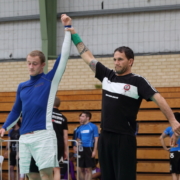Learn the Best Stuff First
The 80/20 principle is the observation that for many events, 80% of the results come from only 20% of the effort.
This principle is used successfully in many industries, from business to engineering, to get the most result for the least effort. Without the luxury of limitless resources, we must use the resources we do have wisely to get the most “bang for the buck”.
We can use this principle as a guide for how to learn, and get better at BJJ. By learning the “best” stuff first we maximise our progress.
For example, if there are 10 moves to learn and 10 hours available, how should we best structure our training? The naive, but common, approach is to simply allocate one hour to each move. This way the practitioner gains equal experience with each move, regardless of that move’s overall effectiveness.
We need to acknowledge that all moves are not equally effective. Rather than one hour per move, allocate say 6 hours to the 2 best moves, and share the remaining 4 hours between the 8 less effective moves. Then apply the 80/20 principle again on these 8 moves, so the more effective moves gets apportioned more time than the less effective ones. The actual numbers in this example aren’t set in stone, but you get the idea. More time is spent on the effective moves, while less time is spent on the not-so-effective moves.
BJJ provides an easy way to distinguish between more effective and less effective (also called high percentage and low percentage) moves — rolling. Averaging over many rolls, high percentage moves are those that are successfully completed more often than low percentage ones. It is these high percentage moves that you should learn first and spend the most time on. If you have extra time and the inclination, you can then invest in the low percentage moves.
The 80/20 principle gives us a guide for beginning to learn BJJ. First focus on the high percentage moves. Only once you have proficiency with these should you move on to the low percentage moves.
See Misapplying the Pareto Principle for more details.



Leave a Reply
Want to join the discussion?Feel free to contribute!